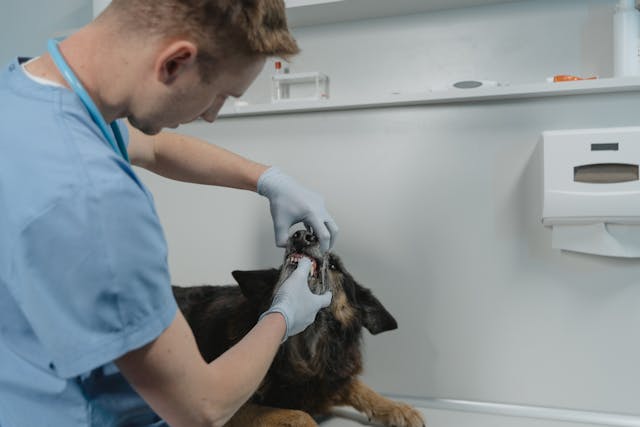
How to Choose a Vet: What to Look for in a Pet Healthcare Provider
Choosing a veterinarian is one of the most important decisions you’ll make as a pet owner. Your vet isn’t just there for annual checkups—they’re your partner in keeping your furry friend happy, healthy, and thriving for years to come.
Whether you’ve just adopted a new puppy, rescued a senior cat, or moved to a new area, finding the right vet ensures your pet gets the care they deserve. Here’s a guide to help you make the best choice.
1. Credentials and Experience
Look for a licensed veterinarian with experience relevant to your pet’s species and breed. Some vets specialize in dogs and cats, while others may have expertise in exotic animals, senior pet care, or certain health conditions.
What to check:
- Valid veterinary license
- Years of experience
- Certifications in areas like surgery, dermatology, or internal medicine
2. Clean and Well-Equipped Facility
Visit the clinic if possible. A clean, well-organized facility says a lot about the level of care your pet will receive.
Things to notice:
- Is the waiting area clean and pet-friendly?
- Do staff use clean equipment?
- Are there separate areas for dogs and cats?
Bonus: Ask if they offer in-house diagnostics, X-rays, or lab services—it can save time and ensure quicker treatment.
3. Compassionate, Communicative Staff
Your vet should not only be good with animals but also with people. They should take the time to explain diagnoses, answer questions, and involve you in your pet’s care decisions.
Look for:
- A calm, kind demeanor toward your pet
- Willingness to answer your questions
- Clear explanations and honest advice
The front desk staff also play a big role—helpful, courteous staff make every visit easier.
4. Convenience and Accessibility
Practicality matters, especially in emergencies or for routine checkups.
Consider:
- Location and parking
- Office hours (do they include evenings or weekends?)
- Appointment availability
- Emergency services or after-hours care
5. Transparent Pricing and Payment Options
Vet care can be expensive, so it’s important to know what you’re paying for. Look for a clinic that is upfront about costs and willing to discuss options.
Ask about:
- Standard pricing for exams, vaccines, and procedures
- Pet insurance compatibility
- Payment plans for larger treatments or surgeries
6. Reviews and Word of Mouth
Online reviews and personal recommendations can offer real insight into what it’s like to be a client at a particular clinic.
Check:
- Google reviews or Yelp ratings
- Social media pages
- Recommendations from friends, neighbors, or local pet groups
Pay attention to consistent themes—especially about staff attitudes, communication, and pet handling.
7. Range of Services
As your pet ages, their healthcare needs may change. Choose a vet who offers services across your pet’s life stages.
Helpful services include:
- Dental care
- Nutrition counseling
- Surgery
- Preventive care
- Senior pet wellness
- Behavioral advice
8. That “Gut Feeling”
Sometimes, your instincts tell you everything you need to know. Did the vet seem rushed or fully present? Was your pet comfortable in the environment? Did the interaction feel warm and genuine?
Trust that feeling—it often reflects the clinic’s overall approach to care.
Photo by Tima Miroshnichenko
